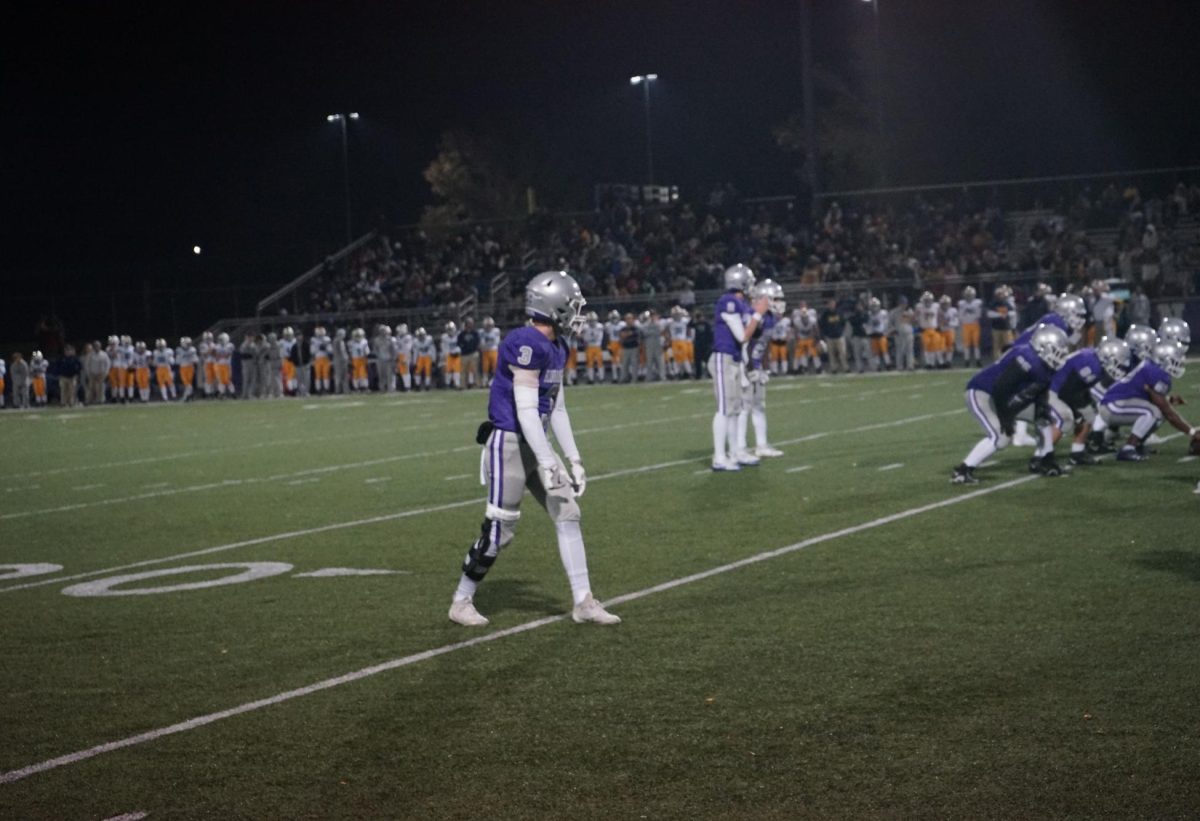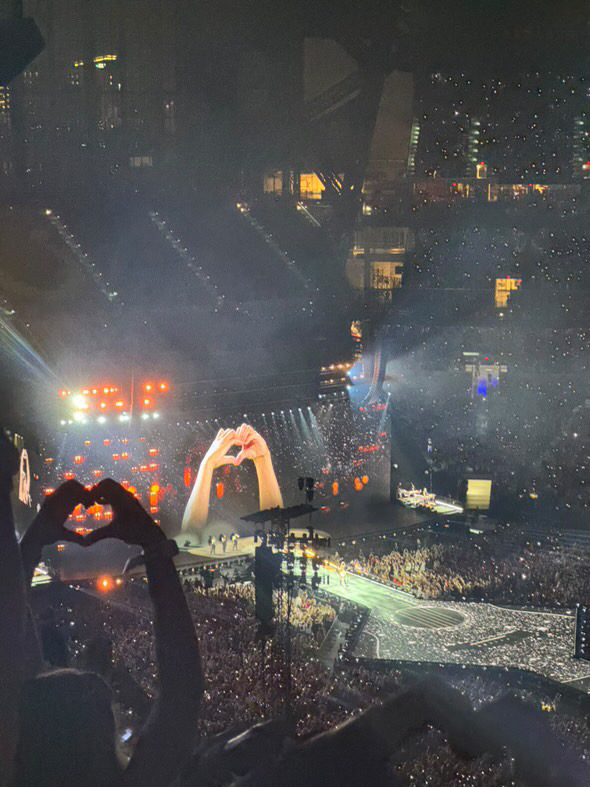I’ve seen numerous comparisons drawn between Barry Jenkins’ masterful new film “Moonlight” and Richard Linklater’s 2014 drama “Boyhood.” And in essence, the two films are quite similar — both filmmakers are fascinated by the ins and outs of growing up and how the experience of transitioning from childhood to adulthood shapes us. Ultimately, though, the two are fascinated by different facets of the experience. Linklater’s film views growing up (and to a certain extent, life as a whole) as a series of ultimately meaningless milestones given meaning by the moments between; how we travel from milestone to milestone is what comes to define our lives. “Boyhood” is an ode to childhood memories good and bad — a love letter to the adventures and occurrences that shape our experiences growing up. It’s less fascinated by how childhood shapes us and more interested in the memories we make as we grow up.
“Moonlight,” however, is far more enamored of the idea of childhood as a transformative period for identity. Jenkins views the transition from boyhood to manhood as one that shapes an individual’s identity and character, and with “Moonlight,” he explores the influences of societally-enforced standards of toxic hypermasculinity on black youth, particularly as a hindrance to the development of identity for LGBT people of color. It’s a film whose message is timely in unexpected ways, and it has so many things to say that simply have never been said before, particularly not in the way Jenkins says them. “Moonlight” unites powerful thematic material with beautifully expressive filmmaking; Jenkins demonstrates a degree of confidence in his artistic choices that’s uncommon for most Hollywood filmmakers nowadays and coerces some of the year’s most understated and captivating performances from an exceptionally talented cast.
Narratively, “Moonlight” is comprised of three distinctive segments — “Little,” Chiron,” and “Black” — each detailing a distinct and uniquely significant period of its protagonist’s life. The name assigned to each segment reflects his identity (as defined by others) at that particular time in his life. We first meet Chiron, a young black boy living in Miami during the war on drugs, as a twelve year old. He is young, impressionable, and more sensitive than the majority of his peers, who degradingly refer to him as “Little.” Chiron befriends a local drug dealer, Juan (Mahershala Ali), who becomes somewhat of a father figure to him, as his mother (to whom Juan sells drugs) often fails to give him the attention and care he needs.
To characterize such an understatedly expressive film as “Moonlight” on plot details alone is to do it a tremendous disservice. Jenkins’ film is one defined not by the contents of its narrative, but by the mood, atmosphere, and emotion whose creation its plot facilitates. It is as much a film about a young black boy growing up in a poor suburb of Miami as it is one about the light of the moon, the soothing sound of waves breaking on a shoreline, furtive glances of affection between potential lovers, stifled by fear. In “Moonlight,” emotion and thematic heft are subordinate to story. It’s a film characterized less by its plot, which serves predominantly as an anchor to keep its thematic musings grounded firmly in a genuinely human story, and more by expression.
The names of the film’s three segments represent labels assigned to Chiron by his peers, and to a further extent, they signify the development of his identity. That two of the three of these names are not ones Chiron uses of his own accord — in fact, “Little” and “Black” are used towards him almost exclusively in a degrading manner — signifies his inability to express an identity that is true to himself. In the film’s middle chapter, “Chiron,” we see him come the closest to this, as he questions his sexuality and subtly rejects the norms of traditional masculinity, yet still he struggles to find acceptance. Furthermore, that the character of Chiron is portrayed by three different (though each equally remarkable) performers throughout the film’s three distinct chapters seems to further suggest the fluid, ever-changing nature of his identity.
The performances Jenkins coerces from his actors are truly magnificent. “Moonlight” is not a film of ham-fisted melodrama or rampant over-sentimentality; it is soft and subdued, expressive in understatedly beautiful ways, and for the picture as a whole to feel stylistically and tonally unified, the performances must also match the film’s subtlety. In the first chapter, Chiron, or “Little” as he is referred to here, is played by Alex R. Hibbert. This is the least emotionally complex portion of the character’s life, though it is still remarkably layered and nuanced, and Hibbert capably brings a necessary degree of emotional depth to the role without sacrificing the character’s innocence and likability. In the next chapter, Chiron is portrayed by Ashton Sanders, who gives what is perhaps the most textured of all the film’s performances, defined predominantly by the remarkably complex emotions and sensitivity he conveys. In the third, “Black,” Trevante Rhodes portrays him. Upon first glance, Rhodes’ performance seems almost facile, devoid of much of the depth that was apparent in the two previous iterations of the character. But this is the point — Chiron has attempted to purge himself of all of his ‘non-masculine’ character traits, and Rhodes’ captures this perfectly with a performance as wonderfully subtle as the film it’s in.
All three performers deliver excellent, soulful performances, but what makes them even more remarkable is their ability to convey emotional growth across all three stories. Sanders’ performance is a continuation of Hibbert’s, and Rhodes’ a progression of Sanders’. The decision to cast three different actors (as opposed to the “Boyhood” strategy of following the same actor into adulthood) suggests the gradual formulation and ever-changing nature of the character’s identity, and the three deliver exceptional performances. “Moonlight” is fascinated both by the facets and flaws of its characters, but also by the bigger ideas their actions represent. It’s a deeply introspective, soul-searching film that looks deep inside its characters and in doing so, urges us to look critically at the world around us.
After his acclaimed feature film directorial debut, “Medicine for Melancholy,” Jenkins shifted his focus to directing exclusively short films. “Moonlight” is, in every sense of the word, a perfect return to form. Its unique narrative structure enables Jenkins to showcase the type of craftsmanship one might expect from a short film, creating three individualistic, yet stylistically and narratively unified, “chapters.” Furthermore, it’s clear that his work in between ”Moonlight” and “Medicine” allowed him to hone his skills as a filmmaker. “Moonlight” is an exceptionally confident film, and it grants Jenkins the opportunity to showcase his prestige as both storyteller and artist.
With “Moonlight,” Jenkins crafts a thoughtful and emotionally poignant character study. It’s a film whose plot creates emotion without slipping into trite melodrama, and it revels in small moments, painting a powerful portrait of the black experience in modern America. He relies on subtlety to convey the film’s ideas, with quietly expressive shots that linger on the characters — their sad eyes, their soft faces — to suggest emotion. Director of photography James Laxton’s stunning camerawork lends a gentle feel to the film, painting Miami in soft, comforting hues. The camera is nearly always up close and personal with the film’s characters, creating a stunning sense of intimacy.
I’ve seen few films as thoughtful, as dramatically poignant, or as emotionally ripe as Barry Jenkins’ “Moonlight.” It’s a beautiful exploration of character and identity, filled with brilliant performances, stunning visuals, and powerful themes; it’s without a doubt the best film I’ve seen all year (and I’ve seen sixteen so far), and one of the most powerful and profoundly affecting films I’ve ever seen. It’s certainly not for everyone — don’t go into “Moonlight” expecting Spielbergian sentimentality or tacky melodrama — but for those willing and able to invest themselves wholeheartedly in its characters and ideas, “Moonlight” is a stunningly beautiful film.






